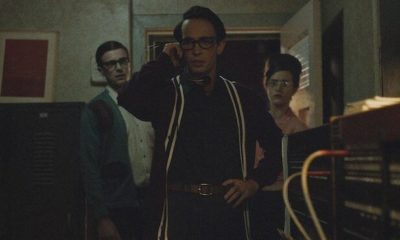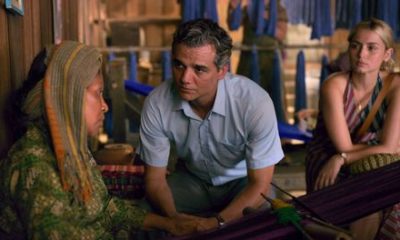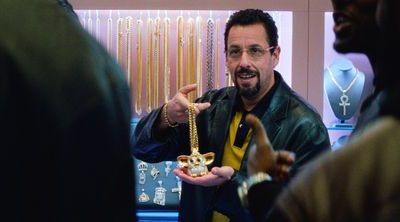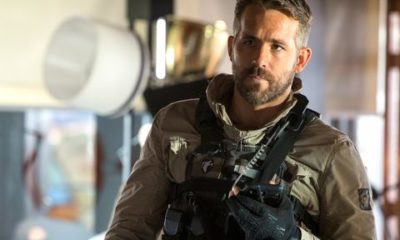42
Jackie Robinson’s story is told in this iopic from writer/director Brian Helgeland. Robinson paved a new road for minorities … Read More
This weekend, “42,” the harrowing real-life story of Jackie Robinson, the first African-American baseball player to play in the whites-only baseball league, slides into theaters. It’s certainly a huge, important story (42 is the only number retired from the whole of Major League Baseball, and once a year every player on every team wears the number), and carries a certain amount of inherent drama, whether you’re a baseball fan or not.
The question, of course, is whether or not the historical drama translates to the big screen. Because, as has been proven time and time again, fascinating bits of real-life drama can also become dull and inert once they hit theaters (even real-life drama that makes you want to sing “Take Me Out to the Ball Game” while eating a hot dog of questionable origin).
With that in mind, we run down the 10 things you should know about “42.”
1.) It’s About Groundbreaking Baseball Player Jackie Robinson, Just FYI
While the poster features an iconic image of a Brooklyn Dodgers player sliding into home base, and underneath the numerical title are the words “The True Story of an American Legend,” “42” isn’t the most descriptive title of all time. (It is, among other things, the last in the series of mythical “Lost” numbers and, according to “The Hitchhiker’s Guide to the Galaxy,” the “answer to the ultimate question of life, the universe and everything.”) It is, for the record, the story of Jackie Robinson, who broke the color barrier in Major League Baseball and instantly became a legend (he was also an insanely good ballplayer).
2.) Be Prepared to Face Han Solo’s Mortality
In “42,” Harrison Ford plays Branch Rickey, the Brooklyn Dodgers General Manager who signs Jackie Robinson. It’s a great part and Ford is mostly great in it — his speech a slurry snarl full of biblical quotes and the hard-boiled grumbles of a pulp-fiction private eye. But Ford is looking, well, older, and it’s sort of difficult to watch (especially with his hair dyed a painfully phony hue). This was, after all, the same man who stoked countless childhood fantasies about zooming through the cosmos looking for adventure. Han Solo may have been frozen in carbonite, but Harrison Ford is getting on in years.
3.) It’s Gorgeous
“42” was shot by Don Burgess, a longtime confederate of Robert Zemeckis, and he captures the look of post-war America perfectly. There’s a slightly honeyed hue to the film but never to the point that it’s sappily nostalgic. It doesn’t look like a Ken Burns documentary, thankfully, and through subtle CGI manipulation and augmentation, a number of period-specific ballparks are lovingly brought back to life as convincingly as any of the dinosaurs in “Jurassic Park.”
4.) Chadwick Boseman Could Be the Next Huge Movie Star
Boseman has the unenviable position of playing one of the most fabled men in the history of baseball, and yet he pulls it off with humility and aplomb. He is able to project Robinson’s stoic steadfastness, necessary for both the game of baseball and the atmosphere of ugly racism, while also letting us see the humility underneath (the commitment to his family, his genuine attempts at being a decent man in a world unwilling to accept him). It’s a tricky performance – not terribly emotive or chatty –- but one that Boseman totally kills. Watching “42,” you get the feeling that you might be watching the next big movie star.
5.) It’s Sort of Like an Old-Timey ‘Moneyball’
While much of “42” is extremely emotional, especially when it comes to the way African Americans were treated during that period of American history, just as much of it is about the financial and tactical advantages of having an African American player on an all-white team. Harrison Ford’s machinations, and writer/director Brian Helgeland’s (writer/director of “A Knight’s Tale” and writer of “L.A. Confidential”) insistence on dramatizing said machinations, is a big part of the movie. So much so that it starts to resemble “Moneyball,” Brad Pitt’s math-and-baseball opus, over things like “The Natural.” Which is pretty weird.
6.) The Supporting Cast Is Terrific
Besides Boseman and Ford, who turn in genuinely wonderful performances, “42” is littered with great supporting roles from a whole host of actors, including Christopher Meloni (as an adulterous manager), John C. McGinley as a hilarious announcer, Lucas Black as a teammate of Robinson’s, Hamish Linklater as another teammate, and Alan Tudyk as a racist manager and the one character who gets to say the “n” word a whole bunch of times (it was like being briefly transported into a screening of “Django Unchained,” then zapped back). All of these actors were put in small parts, but they are truly memorable and add much to the overall atmosphere of the movie. Also, most are gifted comedic actors in addition to being able to handle the dramatic stuff, and with a story this heavy, it’s good to giggle.
7.) It Is, Occasionally, Too Sappy
For the most part, the levels of sappiness are keenly regulated in “42,” but sometimes they slip. Most of the time this happens when Helgeland, for whatever reason, decides to focus on children reacting to Jackie Robinson (either for or against). What’s so weird about this, too, is he handled the “crowd reaction” components of “A Knight’s Tale” so well. Here, it feels hammy and tonally off balance.
8.) There Are Some Never-Before-Seen ‘Baseball Shots’
There have been countless baseball movies and the sport of baseball can seemingly only be captured a handful of ways on the big screen (if these movies are any indication). There were some shots of the baseball action in “42,” though, that felt totally new -– some shaky, hand-held shots of Robinson bolting down the field, and another great one where the camera is placed underneath the stop, so you can watch him slide down on top of the camera –- that added a whole lot to “42.” Again, Burgess did a truly amazing job.
9.) It’s the Story of Jackie Robinson at the Cost of Almost Everything Else
One of the major bummers of “42” is that so much time is spent on Jackie Robinson. He’s a character who arrives to the movie almost shrink-wrapped in historical (almost mythological) import, that almost everything else kind of slips away. There are whole swaths of his life that are not dramatized, and for some reason the movie ends right before the Dodgers get to the World Series (spoiler alert). I, for one, was interested more in the interpersonal dynamics of Robinson and his teammates, and what was going on with his wife (the female characters are so poorly written they almost don’t stay within the frame). But hey, this is the story of Jackie Robinson. And he is a hero (just at the cost of everything else).
10.) You’re Going to Want to Be Eating Popcorn
The movie leaves you no choice. That or Cracker Jacks.



 Movies News4 years ago
Movies News4 years ago
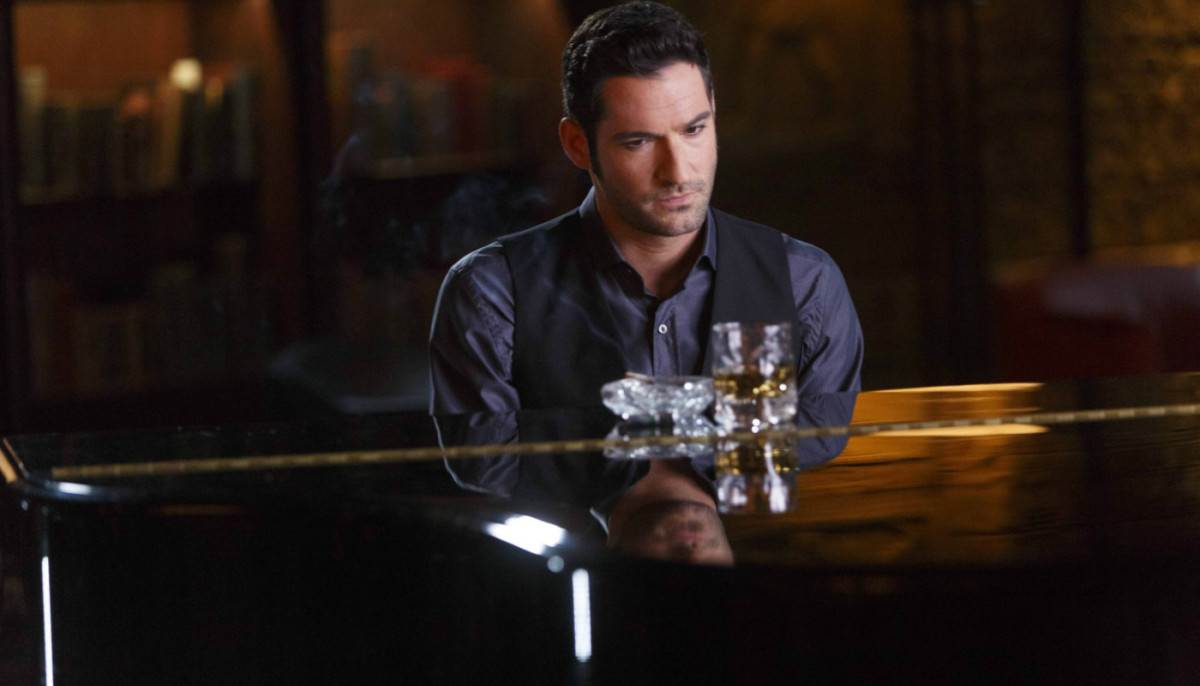

 Celebrities8 years ago
Celebrities8 years ago


 Movies News8 years ago
Movies News8 years ago
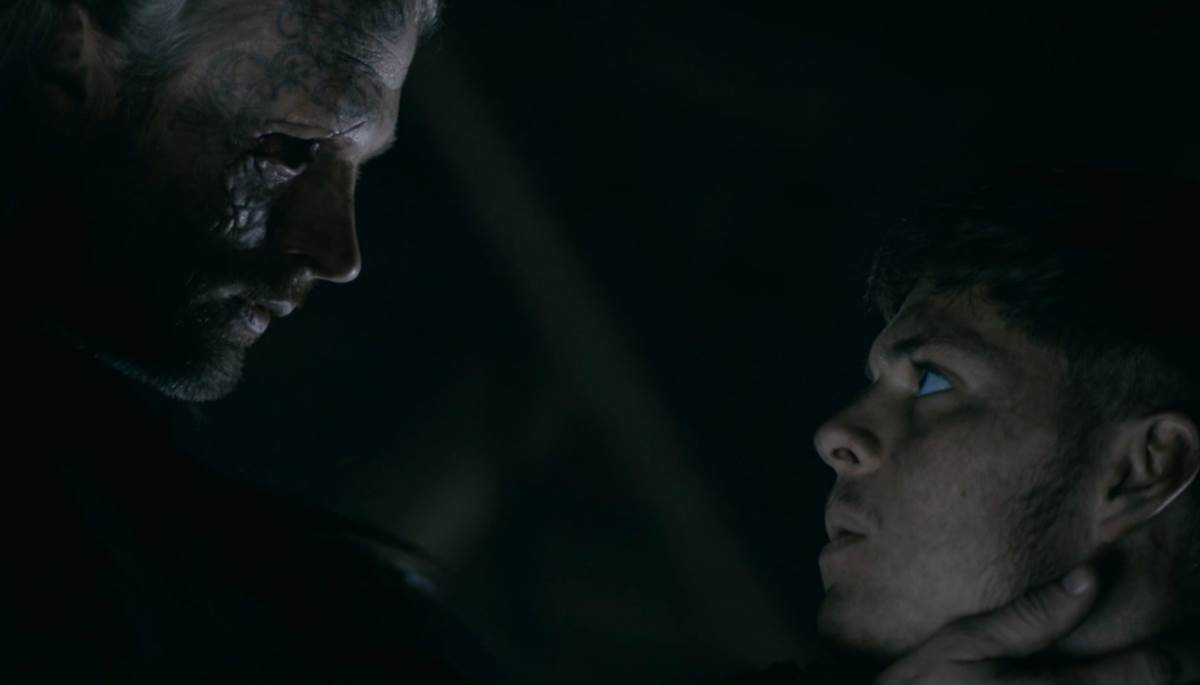

 Celebrities7 years ago
Celebrities7 years ago
